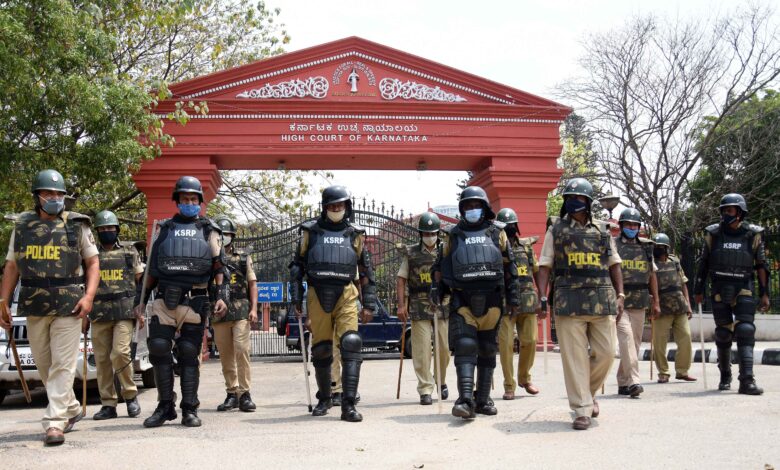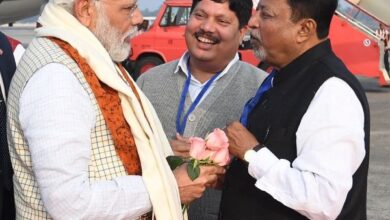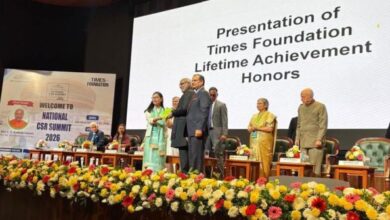
Bengaluru/New Delhi, Mar 15 (UNI): The Karnataka High Court on Tuesday dismissed a bunch of petitions filed by Muslim girl students seeking a direction to allow them to wear hijab in classrooms during teaching hours.
Pronouncing the judgment, the court said wearing of hijab by Muslim women is not part of essential religious practice under Islam and prescription of school uniform is only a reasonable restriction which students cannot object. The bench also observed that the state government has the power to issue an order in this regard.
The judgment was delivered by a three-judge Bench of Chief Justice Ritu Raj Awasthi and Justices Krishna S Dixit and JM Khazi.
Prominent Muslim leader Asaduddin Owaisi and Kashmiri leaders Mehbooba Mufti and Omar Abdullah on Tuesday denounced the Karnataka High Court ruling banning hijab in schools on grounds that hijab was an essential component of Islam.
The decision “is deeply disappointing. On one hand we talk about empowering women, yet we are denying them the right to a simple choice. It isn’t just about religion but the freedom to choose”, said Peoples Democratic Party (PDP) leader Mufti, a former Jammu and Kashmir Chief Minister.
Added National Conference leader and another former Jammu and Kashmir Chief Minister Omar Abdullah: “Very disappointed by the verdict… Regardless of what you may think about the hijab, it’s not about an item of clothing, it’s about the right of a woman to choose how she wants to dress. That the court didn’t uphold this basic right is a travesty,” he said.
Owaisi hoped the petitioners would approach the Supreme Court against the High Court ruling and went on to give several reasons to back his assertion that the ruling was in bad faith. He said the ruling “has suspended fundamental rights to freedom of religion, culture, freedom of speech and expression”.
“For a devout Muslim, hijab is also an act of worship. It’s time to review the essential religious practice test. For a devout person, everything is essential and for an atheist nothing is essential. For a devout Hindu Brahmin, ‘janeu’ is essential but for a non-Brahmin it may not be. It is absurd that judges can decide essentiality,” he added.





